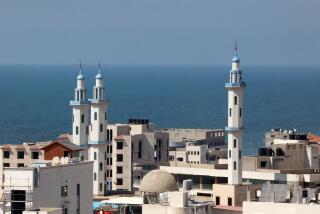DISCOVERIES
Black Glasses Like Clark Kent
A GI’s Secret From Postwar Japan
Terese Svoboda
Graywolf Press: 226 pp., $14 paper
GROWING up with her larger-than-life uncle, Terese Svoboda heard many stories about his stint as an MP in the 8th Army stockade in 1946. In 2004, reports from Abu Ghraib helped push him into a depression, and the idea of his niece writing about his experiences provided a lifeline. Svoboda listened to the tapes he made, but much remained mysterious. The stockade was a facility “for punishing and attempting to reform criminals within the military,” the largest in Asia. At some point it became too crowded, and the officer in charge announced that prisoners sentenced to death would have to be executed. After her uncle’s suicide, Svoboda tries to understand the causes of his 60-year battle with post-traumatic stress. She travels to Japan; she pores over documents. The result is this complex, unresolved, beautiful story.
--
Love and Consequences
A Memoir of Hope and Survival
Margaret B. Jones
Riverhead Books: 296 pp., $24.95
AT age 5, Margaret B. Jones, part white, part Native American, was taken from her suburban Southern California home after she came to school bleeding from what the teachers and social workers assumed was a sexual assault. She spent three years in foster care before landing with “Big Mom,” a hard-working black woman raising four grandchildren in South Central Los Angeles. It didn’t take long for Jones to fall in with the Bloods, the dominant gang in her neighborhood. When she turned 12, a gang leader named Kraziak paid her to help sell drugs. She was “eager to earn my own money toward the flame-red Nike Cortez with fat laces that everyone else wore, but even more excited to prove myself worthy of wearing the affiliated color and moving up in the ranks.” Over the next few years, she saw Kraziak and many other friends and gang members killed. She finally escaped to college in Oregon and now works with International Brother/SisterHood to end gang violence. What makes her memoir different is her loyalty to the language, the sense of community, the tight bonds she formed with her gang. Her message: Only by acknowledging the appeal of gangs and the needs of those who join will any hope of reducing gang violence be realized.
--
Seven Notebooks
Poems
Campbell McGrath
Ecco: 224 pp., $23.95
THESE notebooks are Campbell McGrath’s record of the passing seasons in a year. They contain odes to blueberries (“a democracy of spheres”), beer and bureaucrats (“pallid eyeballs / immured / in fluorescent cubicles”), tributes to Whitman and Rilke. “The world has flooded over me,” the poet writes, and sometimes (as in the poem titled “September 11”) it feels this way to read his work. But more often a feeling of calm descends: “Breakfast: two clementines and a blueberry yogurt while reading Neruda on the porch,” he writes in one of the many prose-poems in this collection.
Tension comes only from the poet’s effort to live in time, to record the quality of colors in Chicago, to notice the way his body feels in different places: “Trapped in the body of sleep I remain / a man. / (Ocelot, narwhal, chimp.)”
--
More to Read
Sign up for our Book Club newsletter
Get the latest news, events and more from the Los Angeles Times Book Club, and help us get L.A. reading and talking.
You may occasionally receive promotional content from the Los Angeles Times.






